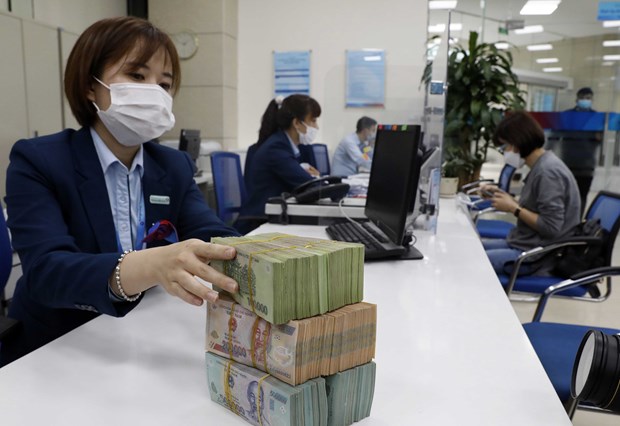Credit growth needs to be substantial
According to analysts, credit growth must be substantial in order to be absorbed into production and commercial operations and create jobs, and only then will it be represented in the economy and, ultimately, in the financial market.
The State Bank of Vietnam (SBV) has asked credit institutions outlining the credit development strategy until 2024. As a result, the SBV has established a credit growth target of 15% and requires credit institutions to manage credit growth by 2024 in order to create favorable conditions for credit institutions to supply credit capital to satisfy economic growth demands. The SBV aspires for a credit growth rate of roughly 15% for this year's credit orientation, adjusted properly to the context and reality.

According to financial analyst Phan Le Thanh Long, credit "room" is seldom given early in the year, and the predicted credit growth is 15%, which is greater than the number for the years 2022-2023, both in terms of allocated plans and actual statistics. This suggests that banks who are proactive in lending at the start of the year and effectively distribute can maximize the SBV's credit room. This is an important move by the SBV and the government to assist economic growth.
"However, we must monitor numerous variables over time since there will be many uncertainties and obstacles this year." If these concerns develop in the future, what was assigned or appraised at the start of the year may alter. Credit expansion, in my opinion, must be large if we are to achieve sustainable growth, create jobs, businesses that provide value and profits, and resume export growth. This implies that loan expansion must benefit enterprises with capital requirements for manufacturing, exports, and the supply of services such as tourism, lodging, eating, and so on. Only then can the economic benefit of loan expansion be represented in the financial market," said Phan Le Thanh Long.
It can be observed that good information about credit rooms in 2024 has influenced the stock market, particularly the banking stock group, although this group has not yet expanded broadly to other businesses.
Long stated that the information has certainly produced a favorable attitude in the market, particularly for leading equities such as banking stocks, but that this effect is just temporary. Because large credit expansion is required, the stock market can only climb for 1-2 sessions before falling back into a slump. Due to the huge liquidity and engagement of a substantial number of individuals in the financial market, where the banking sector retains a significant percentage, such information can often have a counterproductive effect.
"We need to pay attention to the quality of the 15% credit growth rate to represent at least within a year or more." With the present size of the economy, this amount is rather substantial, since the strain on banks is not insignificant. Banks must target the relevant receivers for the proper business reasons in order to produce value for the bank's recovery and return of capital. If the disbursement pressure is too great and deviates, it would generate a severe issue for the macroeconomy's development and stability, particularly bad debts," the expert said.
According to Pham Chi Quang, Head of the Monetary Policy Department (SBV), the banking system's bad debt burden has not lessened due to the high danger of economic recession, resulting in a dramatic drop in people' and enterprises' repayment capabilities. This has an impact on the financial system's security.
Forecasts show that 2024 will be another difficult year for the global economy. This will have an impact on open economies such as Vietnam. Particularly, global demand is at risk of falling as the United States and other major European nations expect a mild recession. These variables might significantly impede the economy's capital absorption capability.
Pham Xuan Hoe, Former Deputy Director of the Banking Strategy Institute (SBV), shared with the Business Forum that in order to achieve good credit growth in 2024, measures in the following areas must be implemented: First, commercial banks' capital must be more mobilized, including the disbursement of cash from public investment to the economy, providing an unlimit ed supply of capital.
Second, credit limit s should be eliminated, and banks with a solid CAR (Capital Adequacy Ratio) and a robust lending portfolio will handle the credit supply story effectively, smoothing the cash flow into the economy, according to Basel II.
Third, provide low-income individuals and workers with consumer loans to help them deal with life while encouraging general demand.








